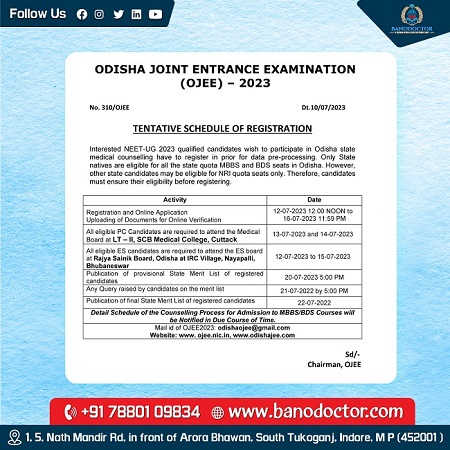Introduction to MBBS Colleges in India
India is known for its prestigious and globally recognized medical education system. The country boasts numerous renowned MBBS colleges that offer top-notch education and training to aspiring doctors. Pursuing an MBBS degree from an Indian institution not only guarantees a strong foundation in medical sciences but also opens up vast opportunities for a rewarding career in the field of medicine.
Admission Process
The admission procedure for MBBS courses in India is highly competitive and rigorous. Students are required to appear for national or state level entrance exams like NEET (National Eligibility cum Entrance Test) to secure a seat in a reputable MBBS college. These exams assess the candidates' knowledge in subjects such as Physics, Chemistry, and Biology. After clearing the entrance exam, students go through a counseling process where they can select their preferred colleges based on their rank and availability of seats.
Infrastructure and Facilities
MBBS colleges in India are equipped with state-of-the-art infrastructure and facilities to provide students with a conducive learning environment. Classrooms are equipped with modern teaching aids, libraries house a vast collection of medical literature, laboratories are well-equipped with the latest instruments, and hospitals attached to the colleges provide hands-on practical training to students.
Faculty and Expertise
The faculties in Indian MBBS colleges consist of highly qualified and experienced professors who hold expertise in various medical disciplines. They ensure that students receive comprehensive knowledge and guidance in their respective fields of study. The faculty members are actively involved in research and make valuable contributions to the medical field.
Affiliation and Recognition
Most MBBS colleges in India are affiliated with prestigious medical universities and have obtained recognition from regulatory bodies such as the Medical Council of India (MCI). Affiliation and recognition ensure that the curriculum and standards of education in these colleges are in line with the national and international benchmarks.
Overall Academic Environment
MBBS colleges in India provide a competitive yet nurturing academic environment to students. The curriculum is designed to cover all fundamental subjects necessary for medical practice, including anatomy, physiology, biochemistry, pathology, pharmacology, and clinical subjects. Along with classroom lectures, students also gain practical exposure through clinical postings, internships, and research projects.
Scope of Career Opportunities
Completing an MBBS degree from a reputed college in India opens up a world of opportunities for graduates. They can pursue various career paths such as working as medical practitioners, specialists, surgeons, researchers, and academicians. India has a vast healthcare sector that offers diverse employment options, including government hospitals, private clinics, research institutes, pharmaceutical companies, and teaching institutions.
In conclusion, MBBS colleges in India provide excellent opportunities for aspiring medical professionals to receive quality education and embark on a fulfilling career in the field of medicine. These colleges offer a comprehensive curriculum, state-of-the-art infrastructure, expert faculty, and ample career prospects. Aspiring doctors should explore the various esteemed MBBS colleges in India to make an informed decision about their academic and professional journey.
Top Government MBBS Colleges in India
India boasts several esteemed government medical colleges that offer top-quality education in the field of medicine. These colleges maintain high standards of education and provide excellent infrastructure and facilities for students pursuing a Bachelor of Medicine, Bachelor of Surgery (MBBS) degree. Here are some of the top government MBBS colleges in India:
- All India Institute of Medical Sciences (AIIMS), New Delhi: AIIMS New Delhi holds an eminent position among medical colleges in India. It is renowned for its world-class faculty, cutting-edge research facilities, and state-of-the-art infrastructure. Admission to AIIMS is highly competitive and based on the performance in the AIIMS Entrance Examination.
- Armed Forces Medical College (AFMC), Pune: AFMC is known for its esteemed reputation as an institution training medical professionals for the Armed Forces. The college offers comprehensive medical education and imparts military discipline and training to its students. Admissions to AFMC are based on the NEET-UG entrance examination.
- Maulana Azad Medical College (MAMC), New Delhi: MAMC, affiliated with the University of Delhi, is a premier medical institution known for its academic excellence. The college offers exceptional clinical and research facilities, enabling students to gain in-depth knowledge and hands-on experience. Admission to MAMC is based on NEET-UG scores.
- King Georges Medical University (KGMU), Lucknow: KGMU, established in 1911, is one of the oldest and most prestigious medical colleges in India. The college provides a wide range of courses, including MBBS, postgraduate, and super-specialty programs. Admission to MBBS at KGMU is through the NEET-UG examination.
- Jawaharlal Institute of Postgraduate Medical Education and Research (JIPMER), Puducherry: JIPMER is a renowned medical institution recognized for its excellence in education, research, and patient care. The college offers undergraduate, postgraduate, and doctoral programs. JIPMER conducts its own entrance examination for MBBS admissions.
- Grant Medical College (GMC), Mumbai: GMC, founded in 1845, is one of the oldest medical colleges in India. It offers a comprehensive MBBS program and focuses on providing students with a strong foundation in medical sciences. Admission to GMC is based on NEET-UG scores.
- Lady Hardinge Medical College (LHMC), New Delhi: LHMC, established in 1916, is a reputed medical college for women. It offers various undergraduate, postgraduate, and diploma programs in medical and allied sciences. Admission to LHMC is through the NEET-UG entrance examination.
- Government Medical College and Hospital (GMCH), Chandigarh: GMCH Chandigarh is a well-known government medical college that aims to provide quality medical education and healthcare services. The college offers various undergraduate and postgraduate medical courses. Admission to GMCH is based on NEET-UG scores.
- Seth Gordhandas Sunderdas Medical College (GSMC), Mumbai: GSMC, affiliated with King Edward Memorial (KEM) Hospital, is among the top government medical colleges in India. The college provides extensive clinical exposure and research opportunities to its students. Admission to GSMC is through the NEET-UG examination.
- Bangalore Medical College and Research Institute (BMCRI), Bangalore: BMCRI is a reputed government medical college known for its academic excellence and research contributions. The college offers undergraduate and postgraduate programs in various medical specializations. Admission to BMCRI is based on NEET-UG scores.
These government medical colleges in India are highly sought after by aspiring medical students due to their exceptional academic standards, well-equipped infrastructure, experienced faculty, and research opportunities. They provide an ideal platform for students to pursue their dream of becoming skilled medical professionals and contribute to the healthcare sector.
Top Private MBBS Colleges in India
India is home to numerous prestigious medical colleges that offer high-quality education and training in the field of medicine. While government medical colleges are well-known and sought after, private medical colleges in India are also gaining popularity due to their state-of-the-art infrastructure, experienced faculty, and excellent placement opportunities. Here is a list of some of the top private MBBS colleges in India:
- Christian Medical College (CMC), Vellore: CMC Vellore is one of the oldest and most prestigious medical colleges in India. It offers undergraduate, postgraduate, and doctoral programs in various medical disciplines. The college is known for its high standards of education, research facilities, and state-of-the-art medical equipment.
- Kasturba Medical College (KMC), Manipal: KMC Manipal is a leading private medical college in India known for its excellent academic curriculum and clinical training. The college has collaborations with renowned international universities, providing students with global exposure and research opportunities.
- St. Johns Medical College, Bangalore: St. Johns Medical College is a renowned private medical college offering undergraduate and postgraduate programs in various medical specialties. The college focuses on imparting quality education, research, and community service.
- SRM Medical College Hospital and Research Centre, Chennai: SRM Medical College is one of the top private medical colleges offering MBBS and various postgraduate programs. The college has state-of-the-art facilities, well-equipped laboratories, and a dedicated faculty that ensures a comprehensive learning experience for students.
- Mahatma Gandhi Medical College and Research Institute, Puducherry: MGMCRI is a well-established private medical college known for its excellent infrastructure, experienced faculty, and strong emphasis on research. The college offers a wide range of medical courses and provides students with hands-on training in its well-equipped hospitals.
- Kalinga Institute of Medical Sciences (KIMS), Bhubaneswar: KIMS is a reputed private medical college that offers quality medical education and research opportunities. The college has tie-ups with international universities and provides students with exposure to global healthcare practices.
- Jawaharlal Institute of Postgraduate Medical Education and Research (JIPMER), Puducherry: JIPMER is a premier medical institute offering undergraduate and postgraduate medical courses. The institute is known for its excellent academic curriculum, experienced faculty, and world-class medical facilities.
- Amrita Institute of Medical Sciences and Research Centre, Kochi: Amrita Institute of Medical Sciences is a leading private medical college known for its strong focus on research and state-of-the-art facilities. The college offers undergraduate, postgraduate, and doctoral programs in various medical specialties.
- Sri Ramachandra Institute of Higher Education and Research, Chennai: Sri Ramachandra Institute is a prestigious private medical college offering a wide range of medical courses. The college has well-equipped laboratories, research centers, and multi-specialty hospitals that provide a holistic learning experience to its students.
- MGM Medical College and Hospital, Aurangabad: MGM Medical College is a reputed private medical college that offers undergraduate and postgraduate programs in various medical disciplines. The college has a dedicated faculty, well-equipped hospitals, and provides students with hands-on clinical training.
These top private MBBS colleges in India not only provide quality education but also offer excellent infrastructure, experienced faculty, and ample research opportunities. Students aspiring to pursue a career in medicine can consider these colleges for their academic journey and gain a strong foundation in the medical field.
Admission Process for MBBS Colleges in India
The admission process for MBBS colleges in India follows a standardized procedure that is regulated by the respective authorities. This ensures a fair and transparent selection process for aspiring medical students. Here is a detailed guide outlining the admission process for MBBS colleges in India.
Entrance Exams:
The first step in the admission process is appearing for entrance exams. The National Eligibility cum Entrance Test (NEET) is the most common entrance exam conducted at the national level. It is mandatory for all medical aspirants to qualify for NEET in order to secure a seat in an MBBS college. NEET evaluates the candidate's knowledge in subjects such as Physics, Chemistry, and Biology.
Application and Registration:
After qualifying the entrance exam, candidates need to fill out the application forms and register for counseling. The application forms are available on the official websites of the respective counseling bodies. Candidates must provide accurate personal details, academic qualifications, and other required information while filling out the forms.
Counseling Process:
Once the application forms are submitted, candidates go through a counseling process. In India, centralized counseling is conducted by the Directorate General of Health Services (DGHS) for the All India Quota seats, while state counseling authorities are responsible for filling seats in state quota. During counseling, candidates can choose their preferred colleges and courses based on their ranks in the entrance exam.
Seat Allotment:
After the counseling process is completed, seats are allotted to candidates based on their ranks, preferences, and availability of seats. Candidates are notified about the allotted college and course through the official website or email. They need to report to the respective colleges within the specified timeframe and complete the admission formalities.
Document Verification:
Candidates must carry original documents and certificates for verification during the admission process. These may include mark sheets, NEET scorecards, identity proofs, photographs, caste certificates (if applicable), and other relevant documents. Any discrepancies in the documents can lead to cancellation of admission.
Fee Payment:
Once the documents are verified, candidates are required to pay the course fees at their respective colleges. The fee structure varies from college to college and candidates must ensure they have the necessary funds to cover the expenses.
Medical Fitness Test:
Before the commencement of classes, candidates are required to undergo a medical fitness test. This is to ensure that students are physically fit to pursue the rigorous MBBS curriculum. The details regarding the medical fitness test and the schedule are communicated to the candidates by the respective colleges.
Conclusion
The admission process for MBBS colleges in India follows a structured and regulated procedure. The entrance exams, counseling process, seat allotment, document verification, fee payment, and medical fitness test are important steps in the admission process. Aspiring medical students should familiarize themselves with these processes and stay updated with the information provided by the authorities to ensure a smooth and successful admission into a desired MBBS college.
Entrance Exams for MBBS in India
To pursue a career in MBBS (Bachelor of Medicine, Bachelor of Surgery) in India, aspiring students need to clear entrance exams conducted at the national, state, and university levels. These exams serve as a basis for admission to top MBBS colleges across the country. Here, we will discuss the important entrance exams for MBBS in India.
- NEET (National Eligibility cum Entrance Test):NEET is the most sought-after entrance exam for MBBS in India. Conducted by the National Testing Agency (NTA), NEET is a national-level exam that serves as the gateway to almost all MBBS colleges in India, including both government and private institutions. The exam consists of multiple-choice questions and covers topics such as Physics, Chemistry, and Biology. NEET has a high level of competition, and thorough preparation is essential to secure a good rank.
- AIIMS MBBS Entrance Exam:All India Institute of Medical Sciences (AIIMS) conducts its own entrance exam for admission into its prestigious MBBS program. AIIMS MBBS entrance exam is known for its difficulty level and tests candidates knowledge and aptitude in Physics, Chemistry, Biology, General Knowledge, and Logical Reasoning. Being one of the most prestigious medical colleges in the country, AIIMS offers excellent infrastructure and academic facilities.
- JIPMER MBBS Entrance Exam:Jawaharlal Institute of Postgraduate Medical Education and Research (JIPMER) conducts an entrance exam for admission to its MBBS program. The exam consists of multiple-choice questions from Physics, Chemistry, Biology, English Language, and Logical Reasoning. JIPMER is known for its excellent reputation and quality education in the medical field.
- State-level Entrance Exams:Apart from the national-level exams, various states also conduct their own entrance exams for MBBS admissions. Some popular state-level entrance exams include Karnataka Common Entrance Test (KCET), Tamil Nadu Medical Entrance Exam (TNMEE), and Maharashtra Common Entrance Test (MHT-CET). These state-level exams have their own eligibility criteria and syllabus, and successful candidates can secure admission in government and private medical colleges within the respective states.
- University-level Entrance Exams:Some universities, such as Banaras Hindu University (BHU), Armed Forces Medical College (AFMC), and Christian Medical College (CMC), conduct their own entrance exams for MBBS admissions. These exams cover subjects such as Physics, Chemistry, Biology, and English Language. Admission to these prestigious institutions is highly competitive, and candidates need to score well to secure a seat.
- Other Entrance Exams:Apart from the above-mentioned exams, there are various other entrance exams conducted by private medical colleges and universities, such as Manipal University Undergraduate Entrance Test (MU OET), SRM Joint Entrance Examination for Health Sciences (SRMJEEH), and Vellore Institute of Technology Engineering Entrance Exam (VITEEE). These exams are specific to individual institutions and have their own selection process.
It is important for aspiring MBBS students to research the eligibility criteria, syllabus, and exam pattern for each entrance exam they plan to appear for. Along with rigorous preparation, seeking guidance from coaching centers, reference books, and online study materials can significantly improve their chances of success.
Scholarships and Financial Assistance for MBBS Students
Pursuing an MBBS degree can be financially challenging due to the high tuition fees and other associated costs. However, there are several scholarships and financial assistance programs available for MBBS students in India. These programs aim to support talented and deserving individuals who may face financial constraints in fulfilling their dream of becoming a doctor. Here are some of the scholarships and financial assistance options available for MBBS students:
- Government Scholarships:;Various state and central government agencies offer scholarships for MBBS students. These scholarships are usually based on merit or income criteria. Some well-known government scholarships include the Central Sector Scholarship Scheme, National Talent Search Scheme, and the Post-Matric Scholarships for SC/ST/OBC students. These scholarships provide financial aid to cover tuition fees, books, accommodation, and other expenses.
- Private Scholarships:;Several private organizations, foundations, and trusts offer scholarships to support MBBS students. These scholarships can be based on academic excellence, financial need, or specific criteria set by the organization. Examples of such scholarships include the Sitaram Jindal Foundation Scholarship, Tata Trusts Scholarships, and the Rajiv Gandhi Foundation Scholarship. These scholarships can significantly reduce the financial burden on students and their families.
- Merit-based Scholarships:;Many medical colleges and universities offer merit-based scholarships to students who have achieved exceptional academic performance. These scholarships are awarded based on the students performance in qualifying entrance exams or their academic scores. Some colleges may provide a significant fee waiver or a reduced tuition fee to top-ranking students.
- Bank Loans:;Another option for students to finance their MBBS education is through bank loans. Many banks in India provide education loans specifically for medical students at favorable interest rates and flexible repayment options. These loans can cover tuition fees, accommodation, books, and other related expenses. It is advisable for students to carefully research and compare loan terms and conditions before applying for a loan.
- Institutional Financial Aid:;Some medical colleges and universities have their own financial aid programs to support economically disadvantaged students. These programs may offer tuition fee waivers, subsidized accommodation, or financial assistance in the form of grants or work-study opportunities.
- Medical College-specific Scholarships:;Certain medical colleges and institutes may have their own scholarship programs, exclusively available to their students. These scholarships are usually based on academic performance, financial need, or other specific criteria as defined by the institution.
It is essential for MBBS students to thoroughly research and apply for scholarships and financial assistance programs they qualify for. Additionally, students can explore part-time job opportunities, internships, or paid research positions within the medical field to help offset their expenses. By utilizing available resources and seeking financial aid, deserving students can overcome financial barriers and pursue their MBBS education with greater ease.
Infrastructure and Facilities in Top MBBS Colleges
Top MBBS colleges in India are known for their excellent infrastructure and state-of-the-art facilities. These colleges understand the importance of providing a conducive learning environment for medical students to excel in their education and training.
Here are some key aspects of the infrastructure and facilities offered by top MBBS colleges in India:
- Modern Campuses: Most top MBBS colleges have modern and well-equipped campuses that provide a comfortable and stimulating environment for students. The campuses are designed to facilitate learning, with well-structured classrooms, laboratories, and libraries.
- World-class Laboratories: Top MBBS colleges prioritize hands-on learning and practical experience for their students. They have advanced laboratories that are equipped with the latest technology and equipment. These labs offer students the opportunity to gain practical skills in various areas of medicine, including anatomy, pathology, biochemistry, microbiology, and physiology.
- Digital Infrastructure: With advancements in technology, top MBBS colleges have embraced digital infrastructure to enhance the learning experience. They provide access to online resources, e-learning platforms, and digital libraries, allowing students to access a vast amount of medical literature and research materials.
- Library Resources: The libraries in top MBBS colleges house a rich collection of medical books, journals, and research papers. These resources help students stay updated with the latest developments in the medical field. The libraries also have dedicated study areas where students can concentrate and enhance their knowledge.
- Medical Museums: Many top MBBS colleges have medical museums that display anatomical specimens, historical artifacts, and medical instruments. These museums offer students a unique opportunity to understand the evolution of medicine and gain a deeper insight into the human body.
- Hostel Facilities: As many students come from different parts of the country to pursue their MBBS, top colleges provide comfortable and well-maintained hostel facilities. These hostels offer a safe and supportive living environment for students, ensuring their well-being and allowing them to focus on their studies.
- Hospital Attachments: Top MBBS colleges often have tie-ups with renowned hospitals, allowing students to gain practical exposure and hands-on training. This ensures that students learn how to apply their knowledge in real-life scenarios and develop essential clinical skills.
- Sports and Recreational Facilities: To foster an all-round development of students, top MBBS colleges also provide sports and recreational facilities. These may include sports fields, gyms, swimming pools, and recreational centers, where students can participate in various activities and maintain a healthy work-life balance.
In conclusion, top MBBS colleges in India offer top-notch infrastructure and facilities to create a conducive learning environment for medical students. From well-equipped classrooms and labs to access to digital resources and hostels, these colleges strive to provide the best possible amenities for students' academic and personal growth.
Quality of Faculty and Teaching Standards
One of the crucial factors to consider when choosing an MBBS college is the quality of faculty and teaching standards. The expertise and competence of the faculty members play a significant role in shaping the future of aspiring medical professionals. Here are some key aspects to consider in evaluating the quality of faculty and teaching standards in MBBS colleges in India:
- Qualifications and Experience:It is essential to assess the qualifications and experience of the faculty members. Look for professors and lecturers who hold advanced degrees in their respective fields, preferably with specializations related to medical education. Experienced faculty members bring valuable insights and clinical expertise to the classroom, enhancing the learning experience.
- Teaching Methodology:The teaching methodology employed by the faculty is another crucial aspect. Effective teaching methods, such as interactive sessions, case-study discussions, and hands-on practical training, contribute to a better understanding of medical concepts. Colleges that prioritize innovative teaching methods can foster an engaging and enriching learning environment.
- Student-Faculty Ratio:The student-faculty ratio is a crucial indicator of the level of attention and guidance students can expect from the faculty members. Lower student-faculty ratios allow for more personalized attention, better mentorship, and individualized support. It is advisable to select colleges with an optimal student-faculty ratio to maximize learning outcomes.
- Research and Publications:Faculty involvement in research indicates their commitment to advancing medical knowledge and staying updated with the latest developments. Look for colleges with faculty members actively engaged in research projects, publications in reputed journals, and participation in medical conferences. Such exposure ensures that students receive up-to-date and evidence-based education.
- Feedback and Reviews:It is valuable to consider the feedback and reviews provided by current and former students regarding the faculty and teaching standards. Online platforms, college websites, and alumni networks are excellent sources for gaining insights into the teaching quality, supportiveness of the faculty, and overall learning experience.
By thoroughly evaluating these factors, aspiring medical students can ascertain the quality of faculty and teaching standards offered by different MBBS colleges in India. Making an informed decision based on these considerations can significantly contribute to a rewarding and enriching educational experience in pursuit of a medical career.
Research Opportunities in Top MBBS Colleges
Top MBBS colleges in India provide ample research opportunities for students interested in exploring the field of medicine beyond the classroom. Engaging in research activities can greatly enhance a student's knowledge, skills, and understanding of medical concepts. It allows students to delve deeper into specific areas of interest and contribute to the advancement of medical science. Here are some key reasons why research opportunities in top MBBS colleges are worth considering:
- Exposure to cutting-edge research:Top MBBS colleges in India often collaborate with prestigious research institutions and hospitals, providing students with access to cutting-edge research facilities and resources. Engaging in research allows students to stay updated with the latest developments in the medical field and contribute to ongoing research projects.
- Enhancement of critical thinking and problem-solving skills:Research opportunities in MBBS colleges encourage students to think critically, analyze complex medical problems, and develop innovative solutions. Through research, students learn to evaluate scientific literature, analyze data, and draw meaningful conclusions. These skills are invaluable for future medical practitioners and broaden their understanding of medical concepts.
- Development of communication and presentation skills:Engaging in research involves presenting findings and discussing them with peers and faculty members. This helps students improve their communication skills, both written and oral, and enhances their ability to present scientific information clearly and effectively. These skills are essential for communicating medical research findings in academic and professional settings.
- Exploration of specialized areas within medicine:Research opportunities in top MBBS colleges allow students to explore specialized areas within medicine. Whether its studying the genetic basis of diseases, exploring new treatment modalities, or investigating the impact of public health interventions, research can help students gain in-depth knowledge and expertise in their chosen area of interest.
- Preparation for postgraduate studies:Research experience is highly valued when applying for postgraduate courses such as MD or MS. Engaging in research during undergraduate studies strengthens an individuals profile and increases their chances of securing admission in reputed postgraduate programs. It also provides a solid foundation for future research pursuits and academic endeavors.
- Contribution to medical advancements:Engaging in research enables students to contribute to medical advancements and make a positive impact on healthcare outcomes. By conducting rigorous research, students can generate new knowledge, identify gaps in existing medical practices, and propose solutions to pressing healthcare challenges.
In conclusion, research opportunities in top MBBS colleges in India offer students a platform to gain practical experience, enhance their understanding of medical concepts, and contribute to the field of medicine. Engaging in research not only strengthens their profiles for postgraduate studies but also equips them with valuable skills that will benefit them throughout their medical careers.
Placements and Career Opportunities for MBBS Graduates
One of the key concerns for aspirants of MBBS courses is the career prospects and placement opportunities offered by top colleges in India. A rewarding career awaits MBBS graduates, with a plethora of opportunities in both public and private sectors.
1. Government Jobs:MBBS graduates can apply for various government jobs in the healthcare sector. They can work as medical officers, doctors in government hospitals, or join government medical services such as Indian Railways, Armed Forces Medical Services, and Public Health Services. These positions offer stability, job security, and a chance to serve the community.
2. Private Practice:Many MBBS graduates choose to open their own private clinics and practice independently. This allows them the freedom to set their own working hours, build a loyal patient base, and earn a lucrative income. However, setting up a private practice requires substantial investment and dedication to build a reputable brand.
3. Specialization and Super Specialization:A postgraduate degree is essential for those aspiring to specialize in a particular field of medicine. Specializations such as cardiology, neurology, dermatology, and orthopedics open up opportunities for higher-paying jobs and advanced clinical research. After completing a specialization, doctors can further pursue super specializations to become experts in niche areas of medicine.
4. Pharmaceutical Industry:MBBS graduates can also explore lucrative career options in the pharmaceutical industry. They can work as medical advisors, clinical research associates, or in medical sales and marketing. These roles allow them to contribute to the development and promotion of new drugs and therapies.
5. Healthcare Administration:Some MBBS graduates opt for careers in healthcare administration. They can take up roles as hospital administrators, health program managers, or healthcare consultants. These positions involve managing healthcare operations, overseeing budgets, and ensuring efficient delivery of patient care.
6. Medical Research and Academics:MBBS graduates with a passion for research and teaching can pursue careers in medical research and academics. They can work as research associates, assistant professors, or clinical investigators in academic institutions, pharmaceutical companies, or research organizations. These roles provide an opportunity to contribute to advancements in medical science and train the next generation of doctors.
7. International Opportunities:MBBS graduates also have the option to explore international opportunities. They can apply for postgraduate programs abroad or work in reputed hospitals and research institutions globally. These opportunities provide exposure to diverse healthcare systems, advancements in medical technology, and the chance to work with renowned medical professionals.
It is important to note that career opportunities may vary depending on factors such as specialization, experience, and individual skills. It is recommended for MBBS graduates to continuously upgrade their knowledge and skills through continuing medical education programs to stay competitive in the field.
Overall, MBBS graduates have a wide array of career opportunities both in India and abroad. The decision to pursue a specific career path depends on individual interests, goals, and aspirations. With India's growing healthcare industry, there is a high demand for competent and skilled doctors, making an MBBS degree a promising choice for those passionate about a career in medicine.























![Online Application Form for the National Eligibility-cum-Entrance Test [(NEET (UG)] 2024](https://www.banodoctor.com/public/notifications/1707717098.webp)







